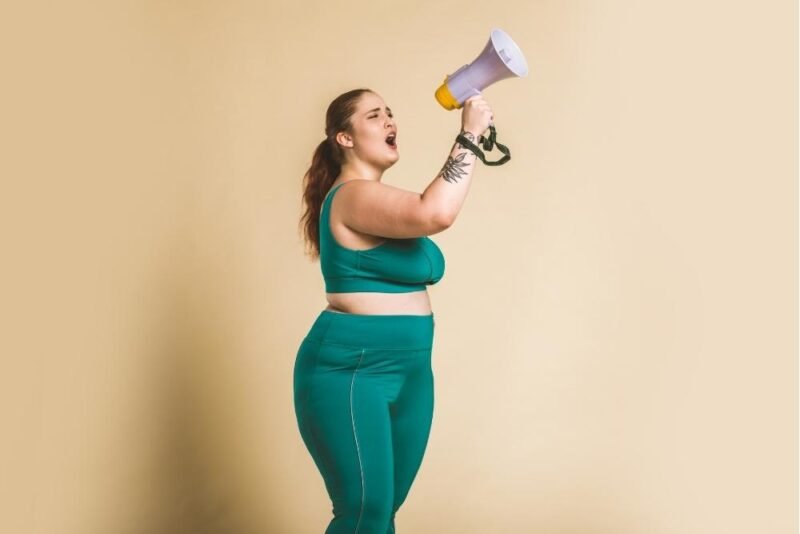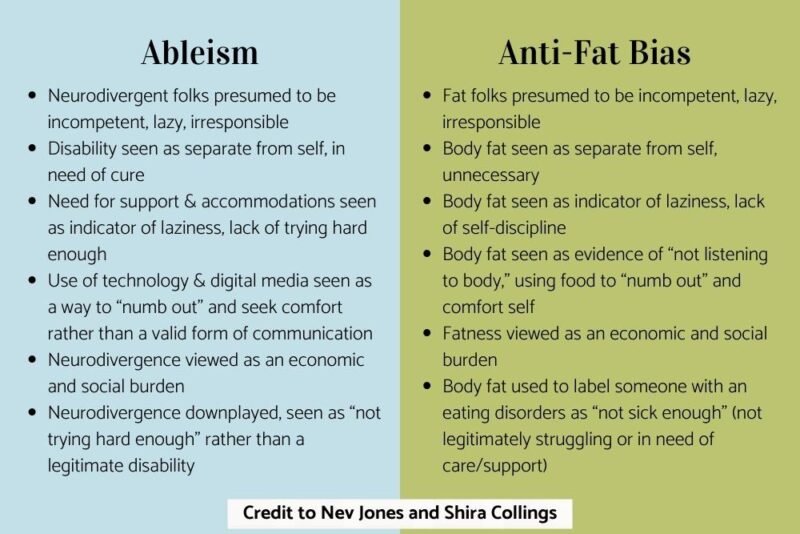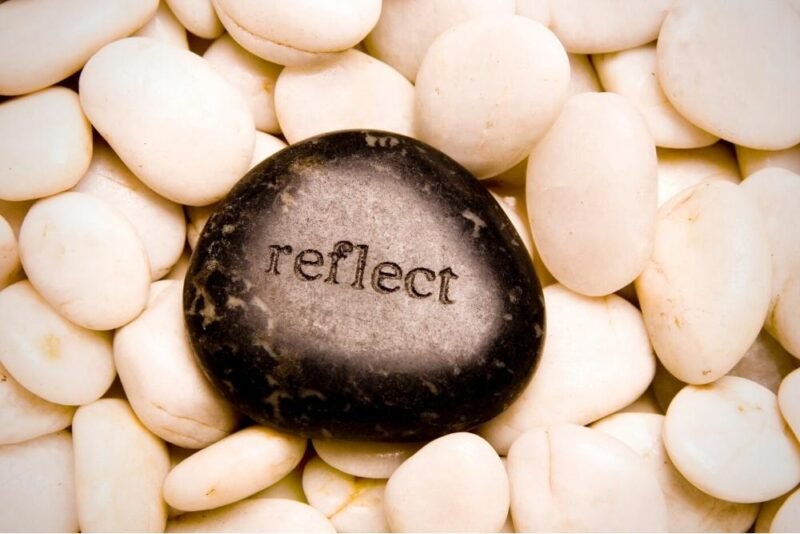
The intersections of diet culture, ableism, healthism and anti-fatness

The subject of this website publish is just one I only started off to take a look at myself in the previous year or so. I was shocked, at very first, when it sunk in how ableist diet regime culture is, with healthism and anti-fatness/sizeism as the backlinks. I realized how ablest (and healthist) my have thinking was back when I was deeply enmeshed in diet plan lifestyle, myself. And now that I see this darker aspect of diet program culture, I can not unsee it, and I want you to see it, way too.
Food plan tradition is just 1 of several social units in which persons are handled inequitably. It frequently overlaps not just with ableism, sizeism and healthism, but also with racism, sexism, ageism and classism.
Diet plan tradition supports interpretations of private health selections as ethical character — it’s not just about fat decline. Diet tradition does not assist the value of all bodies, and diet program lifestyle does not exist in a vacuum.
Even if you don’t take into account oneself to be on a “diet,” due to the fact you stay inside diet regime lifestyle, you will nevertheless have ideas, beliefs and behaviors — conscious or unconscious — that have been strongly motivated by diet culture. Except you do the function to cost-free oneself, of study course.
Carefully linked to eating plan tradition is physical fitness culture, which, not amazingly, is also healthist and ableist, sending subtle or not-so-refined messages that exercise need to be applied to “overcome” or steer clear of incapacity, due to the fact disabled bodies have fewer price.

What is “disability”? What is “ableism”?
So, what do I indicate when I say “disabled”? I’m not only chatting about needing to use a wheelchair, a walker, a cane or other mobility guidance devices. Disabilities can be noticeable, or not noticeable. Anyone with a wellbeing ailment that has an effect on their power, endurance or mobility would be disabled, and that may well not be entirely seen. Or, somebody could be neurodivergent, which typically is invisible.
“Neurodivergent” is term for people with cognitive and/or neurological procedures that vary from what is regarded as — by cultural/societal and professional medical specifications — to be “typical” or “normal.” This involves men and women with autism, ADHD, panic, depression and borderline personality, as nicely as persons who are extremely delicate to sensory stimulation.
I uncovered this definition by attorney and social justice activist Talila “TL” Lewis to be thorough and strong:
“A process of assigning worth to people’s bodies and minds based on societally built concepts of normalcy, productivity, desirability, intelligence, excellence, and health and fitness. These constructed ideas are deeply rooted in eugenics, anti-Blackness, misogyny, colonialism, imperialism and capitalism.
“This systemic oppression prospects to men and women and society analyzing people’s value dependent on their culture, age, language, visual appeal, faith, beginning or living location, “health/wellness,” and/or their ability to satisfactorily re/create, “excel” and ‘behave.’
“You do not have to be disabled to knowledge ableism.”
What ablism and anti-fatness/sizeism have in popular is the best — held by the clinical technique and society at massive — that becoming extra fat and remaining disabled are the two abnormalities that the personal really should do the job tricky to get over. Also, that owning a physique that is irregular in this way implies that you are not usual, and not quite human. [Note that I use the word “fat” as a neutral descriptor, like short or tall.]
Which is finish and utter bullsh*t.

A very first search at ableism and anti-body fat bias
Just as you really do not have to be disabled to practical experience ableism, you don’t have to be excess fat to encounter anti-fat bias. If you are a skinny man or woman who meal plans or physical exercises to continue to be thin, it’s at the very least in portion simply because you are worried of becoming unwanted fat. It could also because you are worried of starting to be “unhealthy” or experiencing a reduction of mobility.
I have had consumers in larger sized bodies who also come about to have some mobility challenges explain to me how significant it was for them to try out to stroll or move “normally.” This is significantly less about how motion feels in their overall body, and much more about how they may possibly be judged by other if they are fat AND they stroll gradually. I have also experienced neurodivergent consumers in much larger bodies sense elevated force to mask signs of their neurodivergence.
Systemic oppression centered on no matter if a person adheres to societal beliefs of “normalcy” and “intelligence” impacts disabled and neurodivergent individuals, as very well as fat persons. This can include things like:
- Concentrating on reducing “symptoms” of neurodivergence — or on losing bodyweight — as a result of diet interventions.
- Seeing neurodivergence — or “excess” overall body extra fat — as one thing to “cure.”
- Focusing only on how neurodivergent and fat persons can cope in an ableist/anti-body fat globe alternatively of focusing on making the planet a lot more accessible and welcoming to a diverse vary of men and women.
On that final point, men and women residing in fat bodies may perhaps have issues discovering appealing dresses (or any clothes that are not personalized-built) that in shape. They may perhaps dread going to places to eat, theaters or on airplanes due to the fact they know (or are not guaranteed) if the chairs or seat will accommodate their bodies. People dwelling with a bodily disability might also have trouble locating dresses and seats (or overall structures) that are developed to satisfy their demands.

How healthism plays a connecting job
Healthism is a philosophy that overemphasizes specific duty in health and fitness outcomes and prioritizes pursuing wellness above all else. This can incorporate:
- Demonizing having for satisfaction, pleasure, convenience, or stimulation. (There must be no shame in discovering satisfaction/joy/comfort from meals, and food items can be an vital variety of stimulation, or stimming, for some neurodivergent people.)
- Shaming individuals for choosing usefulness meals, irrespective of the simple fact these meals may be enjoyable, and may be a saving grace for occupied folks as effectively as people who locate it complicated mentally or bodily to prepare dinner a meal “from scratch.”
- Viewing well being (and the pursuit of wellness) as a ethical obligation.
I have a large amount to say on that past position, but let us start out by pointing out what may well be obvious: Many people are (reluctantly) ready to give fat people today a move “as extensive as they’re balanced.” This is aspect of the “good fatty” trope — be lively, appealing and effective, and don’t acknowledge your current system as Alright. (If you are fats and dare to like you, somebody may accuse you of “glorifying obesity.”
I’ve had numerous consumers in much larger bodies convey to me they truly feel they want to glance like they’re attempting to lose fat or “get healthy” — purchasing the salad, likely to the health and fitness center, bragging about their exceptional cholesterol and blood sugar amounts — even when they are in the method of unsubscribing from food plan tradition and building peace with food stuff and their bodies.
When another person “concern trolls” a extra fat human being on social media (or elsewhere), what do they say? Ordinarily a little something like, “but you’re not healthy” or “you’re heading to get diabetes.” Yep, ableism (and healthism) are inherently baked into anti-fatness.
Although it’s true that fat and health are not carefully linked (association does not prove causation), I’ve come to stick to statements I make about that stage with an additional statement that can be even intellect-blowing: staying healthier and/or pursuing health and fitness is not a moral imperative.
Mic fall.

Wellness is not a assurance, or a measure of worthiness
Rather only, “health,” as it is typically defined, is not a source that is offered to absolutely everyone. Some folks never ever have that useful resource. Other individuals intermittently have it. Continue to other persons have it for a even though, then do not have it, and hardly ever have it again.
Like it or not, if we are blessed more than enough to dwell long ample, things are going to come about to our bodies. We could come across that our joints ache, that we acquire bodyweight, that our blood force traits bigger, that we need to have to use a walker or a wheelchair, that we get most cancers. Our bodies are no fewer worthy. We are no fewer worthy.
When I was even now doing “non-diet program excess weight management” (which I ultimately recognized was not a point) I would frequently assist clients set “meaningful” objectives. In other words and phrases, as an alternative of making use of fitting into “skinny jeans” as a purpose, we would use “keeping up with your kids” as a aim. Yep, that’s fully ableist. Some mom and dad will never ever be able to “keep up with” their youngsters or get down on the flooring to perform with their children. That does not make them terrible or ineffective parents.
Fats persons and neurodivergent men and women have constantly existed, so alarmist headlines (and the community health machinations powering them) about the “ob*sity epidemic” or the “autism epidemic” really distribute the strategy that any person who diverges from what has been labeled “normal” should be eradicated or erased. We noticed this plainly in a single not-so-charming chapter of our country’s heritage included what had been known as “ugly laws.”
From 1867 to the beginning of Planet War I, some U.S. metropolitan areas enacted so-named “ugly laws” banning persons deemed “diseased, maimed, mutilated or in any way deformed so as to be an unpleasant or disgusting object or inappropriate person” from community areas. Whilst these regulations became fewer enforced above time, Chicago didn’t repeal its “ugly law” until 1974, when an alderman took up the trigger, contacting the regulation “cruel and insensitive” and “a throwback to the Center Ages.”

A 2nd seem at ableism and anti-fatness
For this portion, and the graphic above, I give large credit rating to mental wellness researcher and professor Nev Jones and therapist Shira Collings, who gave a speak collectively at an RDs for Neurodiversity conference I attended previously this calendar year.
They explained the notion of “excess” is an underlying thread beneath anti-unwanted fat bias and ableism. Body body fat/fatness is witnessed as excessive body tissue, and as a outcome of too much consuming. The information is also that the human body alone is nearly “excess” – that physique dimension is independent of who we are. Identical with neurodiversity – disability and disability accommodations as an “excess,” accommodations as unwanted.
Each unwanted fat and neurodivergent persons encounter objectification and disempowerment, as they are not found as the authorities on their possess needs. I imagine this is real for folks who have other sorts of disability, as properly.
Jones and Collings pointed out that neither body fat or neurodivergence are issues that want to be remedied or removed, and that our bodies are pieces of our minds and ourselves.
- Our cognition (imagining) is motivated by our bodies, and fat suppression can have a sizeable negative affect on our considering.
- When anyone is inside of their set issue range—which may well require remaining fat—this is required and in simple fact important to how they purpose and who they are.
There is some severe food items for believed there.

So now what? Methods to mirror
Did this post feel like a great deal? If it did, which is Alright. I hope it opens a door to checking out your own ideas, feelings, beliefs and assumptions about what bodies (and minds) are worthy and important. In this article are some thoughts to get you imagining:
- What methods of becoming unique get labeled as “bad” or “inferior” in our modern society? Do you agree or disagree with these labels?
- In what techniques do you label other people as being a lot less deserving? Do you truly feel like you do this consciously, or unconsciously (like possibly you absorbed these strategies from culture but haven’t actually examined or questioned them)? How are these people today diverse from you? Do you discover any fear that you could someday be like these people today?
- Really should people today have to improve their bodies or minds to “fit in,” or should really our modern society and its programs evolve to be more inclusive of all sorts of people today?
- Do you choose (consciously or unconsciously) persons who are “unhealthy”? Do you make a difference amongst getting a ailment or incapacity that is “preventable” vs. just one which is not? Why?
- Do you consider it’s a moral crucial to go after wellness? Why or why not? If you do, how does this align (or conflict) with other beliefs you have about body autonomy?
- Do you think that we have personal manage in excess of our wellness? If sure, can you assume of any or illustrations where that’s not the scenario?
- If you know that you decide folks centered on their measurement, skill, wellbeing or other elements, how does that make you truly feel? Have you been judged by other people (or your self) based mostly on anything about you which is distinctive? How did that make you really feel?
- Do you stand opposed to some forms of oppression (say, racism) but locate that you permit other kinds of oppression slide by? Why?
Some of these concerns may well expose responses about your self that make you cringe. If so, that is Okay. Strategy them with curiosity and self-compassion, and if you learn that you have some beliefs or mindsets that will need to modify, then begin to adjust them. If we aren’t mindful of our feelings, feelings, beliefs and behaviors, then we keep stuck. Consciousness (all over again, paired with curiosity and self-compassion) opens the doorway to figuring out improved, and carrying out superior.
Carrie Dennett, MPH, RDN, is a Pacific Northwest-based mostly registered dietitian nutritionist, freelance author, intuitive consuming counselor, author, and speaker. Her superpowers consist of busting nourishment myths and empowering women to come to feel greater in their bodies and make food alternatives that guidance enjoyment, diet and health. This article is for informational functions only and does not constitute individualized nourishment or health-related assistance.
 Print This Article
Print This Article
